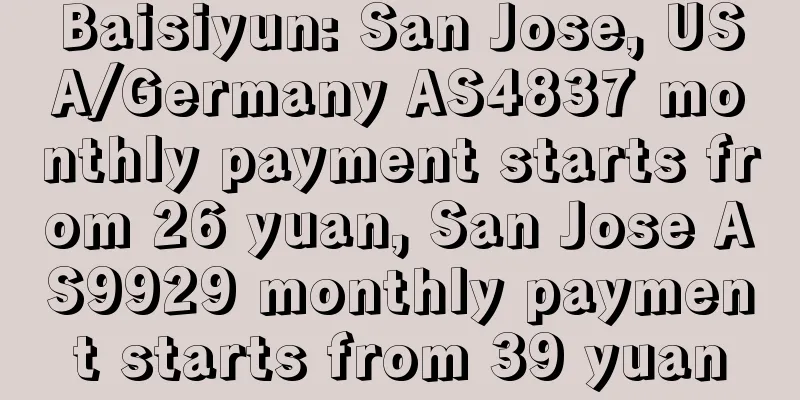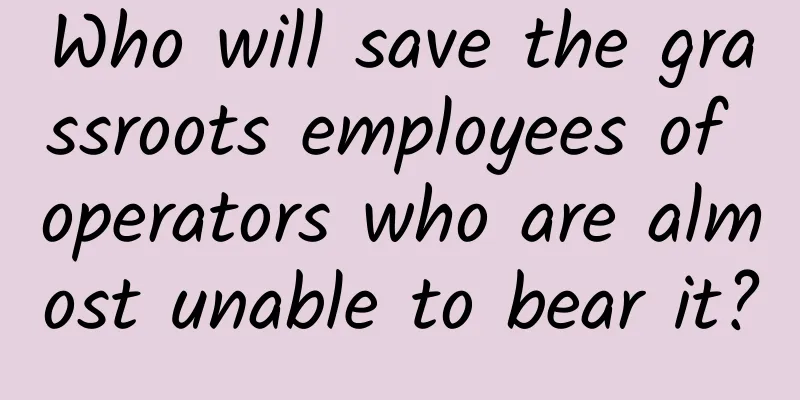It has been difficult for virtual operators to become legal operators in three years, and telecommunications fraud has become a stumbling block

|
The long-delayed official mobile resale license will be approved before the Spring Festival in 2017, but this news has not been confirmed by the Ministry of Industry and Information Technology. After three years of pilot period, virtual operators are still in an awkward market position. Telecom fraud, insufficient number resources, wholesale and retail inversion and other issues have become obstacles for virtual operators to "become regular". Although some companies have gradually found some "doors" to make profits through differentiated operations, in the view of industry insiders, the issuance of official licenses does not mean that they can sit back and relax. On the contrary, industry competition has just begun and a reshuffle is inevitable. The official license was delayed for a year According to news on January 3, the State Council will approve matters related to the mobile resale formal license before the Spring Festival, and the application window will be opened after the New Year. After that, virtual operators can apply to the Ministry of Industry and Information Technology, which will review and approve the application and issue the formal license to the company. Regarding the authenticity of this news, a Beijing Business Daily reporter called the Information Office of the Ministry of Industry and Information Technology to verify it. The staff of the Information Office said that there has been no news that the official license will be issued. Virtual operators are the product of my country's telecommunications industry opening up to private capital. On January 8, 2013, the Ministry of Industry and Information Technology's website published a draft of the "Mobile Communications Resale Business Pilot Program" for comments, deciding to launch a pilot program for mobile communications resale business. In December 2013, the Ministry of Industry and Information Technology issued the first batch of mobile communications resale business pilot approval documents, and since then, the mobile resale business has developed rapidly, and currently 42 companies have obtained pilot licenses. According to the original plan, the pilot period of many virtual operators ended on December 31, 2015. Now, two years have passed, and the official mobile resale licenses that were originally scheduled to be issued at the beginning of last year have not yet appeared. The pilot policy of mobile resale is seen as the "beginning of opening up key areas of telecommunications to private capital." Previously, many Internet companies believed that once private capital entered the telecommunications industry as a virtual network operator, the monopoly of traditional telecommunications operators on basic telecommunications services would be broken, their revenue growth would be hindered, and part of the huge profits of telecommunications operators would be shared by private Internet companies. However, a document from the Ministry of Industry and Information Technology shows that this reform is not intended to transfer the profits of the three state-owned basic telecommunications operators to private enterprises, "but to explore the model and regulatory policy of cooperation and competition between basic telecommunications business operators and mobile communications resale companies", that is, the two parties will maintain a "co-competitive relationship." To ensure the implementation of the pilot, the document of the Ministry of Industry and Information Technology stipulates mandatory measures, requiring the three major basic telecommunications operators to cooperate with two resale enterprises within two years. At the same time, the document also stipulates that the three major basic telecommunications operators must guarantee some operating conditions of the resale enterprises, such as the access quality of the services provided shall not be lower than the access quality of the self-operated business, and the wholesale price level given by the basic telecommunications business operators to the resale enterprises shall be lower than the most favorable retail price level of similar services in the local public market. Real-name system slows down progress? According to Kang Zhao, editor-in-chief of Operator World, the official licenses that were supposed to be issued in 2016 have not been issued in 2017, which is related to the fact that the number segments operated by virtual operators have become the hardest hit areas for telecom fraud. Last year, a prospective college student named Xu was defrauded of nearly 10,000 yuan in tuition fees by a fraudulent phone call, which led to cardiac arrest and death. This case has focused the public's attention on telecom fraud and virtual operators. This tragedy is just a microcosm of thousands of telecom fraud cases. Since then, the virtual operators behind "170" and "171" have become the object of fear for consumers. It is understood that due to the strict restrictions on the number of numbers and cities where numbers are released, virtual operators will only obtain the next batch of number resources when the account opening ratio in the cities where numbers are released reaches 50%. Therefore, some virtual operators do not hesitate to use illegal channels to increase sales, which is also the main reason why 170 cards have flowed into the card market in large quantities and can be processed without an ID card. In order to solve this problem, the Ministry of Industry and Information Technology said it will further strengthen supervision and management of virtual operators, and will use the implementation of the real-name system as a veto item for virtual operators' applications to expand their business scope, increase number resources, and issue formal business licenses. Virtual operators that violate the real-name system regulations will be dealt with severely. In addition to the problem of implementing the real-name system, number resources are another bottleneck restricting the development of virtual operators. Xu Lidong, director of the China Academy of Information and Communications Technology, pointed out that the Ministry of Industry and Information Technology still plans number resources according to the traditional local network model. Since virtual operators only carry out business in a few cities, this directly leads to a shortage of numbers in rapidly developing areas and a situation where numbers cannot be released in areas where there is no business. Unclear profit model In addition to the real-name system and code number issues, another major factor that makes it difficult for virtual operators to operate is the lack of profitability. Zou Xueyong, secretary general of the China Virtual Operators Industry Alliance and Broadband Think Tank, revealed that from the beginning of the trial at the end of 2013 to now, most of the 42 virtual operators that have been issued pilot licenses by the Ministry of Industry and Information Technology are in a loss-making state. The lack of profitability has forced some companies to withdraw from the mobile resale market early, and some have been abandoned by capital. The reason for the loss is inseparable from the "wholesale-retail inversion". Zou Xueyong pointed out that the loss of virtual operators is mainly due to the different prices given by basic operators to virtual operators and users. For example, the basic operator directly charges users 5 cents for 1M of traffic, while the price given to virtual operators is as high as 15 cents, resulting in the phenomenon of "wholesale-retail inversion", which has caused the virtual operators to continue to lose money. It is not that the relevant national departments have not taken support measures for virtual operators. At the beginning of last year, the Ministry of Industry and Information Technology issued the "Guiding Opinions on the Adjustment of Wholesale Prices of Mobile Communications Resale Services" to the three major telecom operators and all virtual operator pilot enterprises, requiring that the wholesale prices of virtual operators should be lower than the average unit price (or package price) of similar services of telecom operators; the wholesale prices of virtual operators should be adjusted in conjunction with the average unit price (or package price) of basic telecom operators, and in principle, adjusted at least once a year. In October last year, China Unicom started to pilot the module tariff in the mobile resale business, and will fully open it to all cooperating virtual operators after the pilot period. Module combination means that the basic operator packages a package of voice, traffic and other aspects and sells it to the virtual operator, and the tariff is relatively fixed. In Kang Zhao's view, the module combination model is expected to change the embarrassing situation of "wholesale and retail inversion" of virtual operators. But even so, the profit model of virtual operators still has no clear positioning. Xiang Ligang, a senior communications expert, pointed out that the formal license is like a wet cotton-padded jacket for virtual operators in winter, which is uncomfortable to wear but hard to take off. When the formal license is issued, some pilot enterprises that have not actually carried out business may not be keen to apply for formal licenses due to the difficulty in acquiring users and making profits. In the future, the virtual operators will be reshuffled, and there may be only two or three large enterprises and a few regional enterprises left. |
>>: Learn how to manage and protect cabling systems
Recommend
IOFLOOD: $59/month-E3 1230v2, 32GB memory, 2x8TB hard disk, 20TB/1Gbps, Phoenix data center
I checked and found that the last time I shared i...
NTT and Cisco jointly attended the 2021 China CIO Alliance Annual Summit Forum
[[435879]] The China CIO Alliance (CCA) was held ...
From "manufacturing" to "intelligent manufacturing", Qingdao Kute shares its successful experience
...
Kunpeng spreads its wings and walks with youth | Kunpeng University Tour Shanghai Jiao Tong University special session explores technology, practice and innovation
On the afternoon of December 4, the first stop of...
"e-Enterprise Networking, Setting Sail for a Long Journey", China Mobile's new e-Enterprise Networking product is officially released
On January 16, China Mobile and Huawei successful...
RepriseHosting: $29.5/month-L5640/16G memory/12TB HDD/1Gbps bandwidth/Seattle data center
RepriseHosting is a low-cost US server provider f...
WeChat Android version 7.0.21 beta version update: audio and video editing component breakpoint resume, optimized performance
According to netizens’ reports on November 18, We...
Huawei's Liu Kang: Practicing what we preach and building a 5G core network for deterministic networks
[Shenzhen, China, July 30, 2020] The 2020 Win-Win...
Explore how Gateway API works in Service Mesh
A few days ago, Gateway API announced that it wou...
I am confused. If I want to store IP addresses, what data type is better?
When it comes to IP addresses (IPv4), common IP a...
Unlimited speed & 2TB large capacity! Alibaba Teambition cloud disk experience
[[355404]] The news that Alibaba is going to ente...
What are the deployments and arrangements for 5G in 2022? MIIT responds
On January 20, the State Council Information Offi...
TmhHost: 388 yuan/year KVM-2 cores, 4G memory, 40G disk, 1.5TB traffic, Los Angeles CN2 GIA/AS9929/Japan Softbank optional
This month, TmhHost continues to offer special an...
IDC: Ethernet switch market grows 2%
According to IDC's Worldwide Quarterly Ethern...
A survival guide for communications professionals
The situation in 2022 is more serious than expect...






![[Black Friday] TMThosting: VPS monthly payment up to 55% off, dedicated server 10% off, Seattle data center, Alipay support](/upload/images/67cac229924c0.webp)


